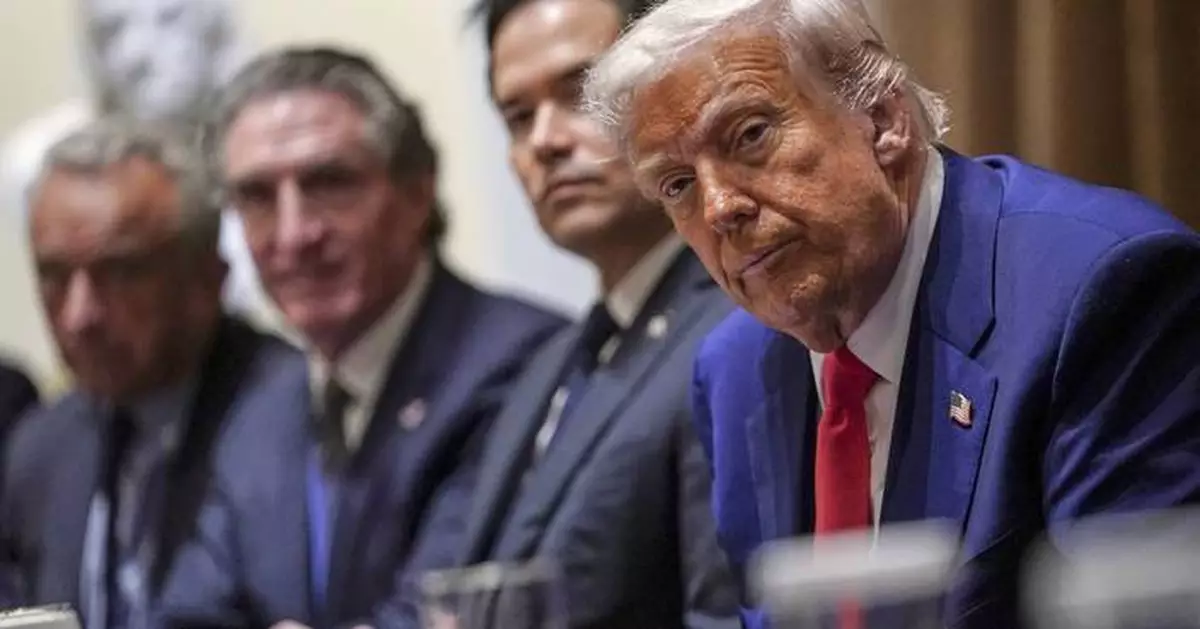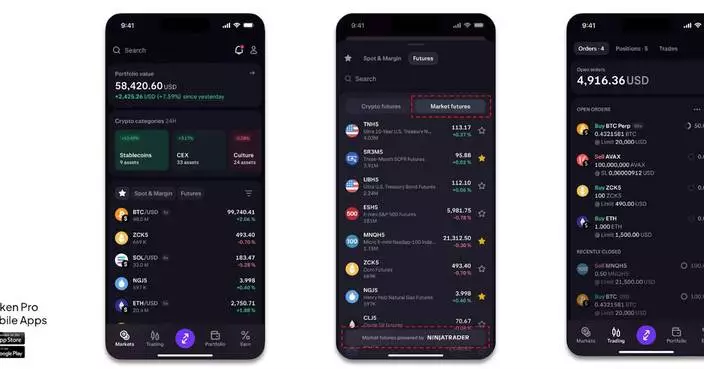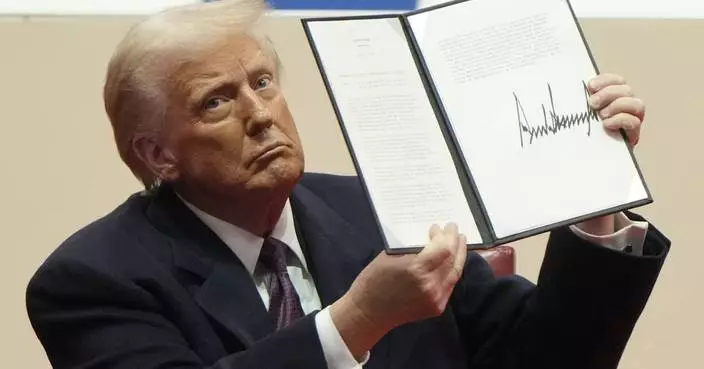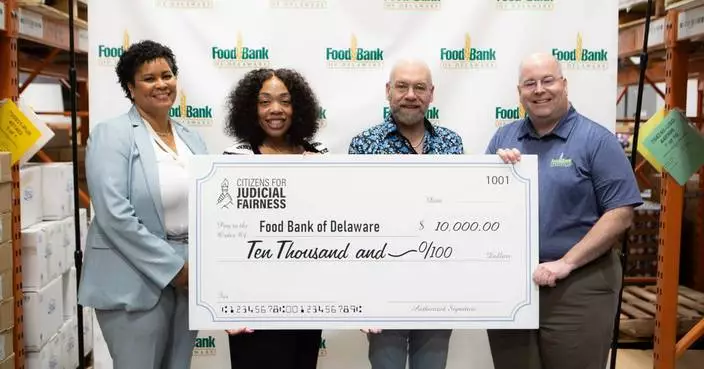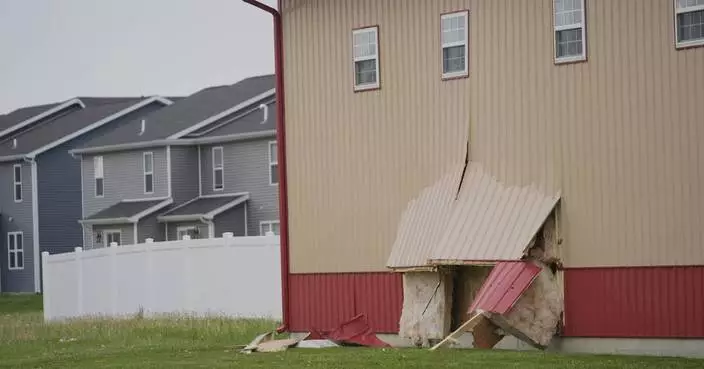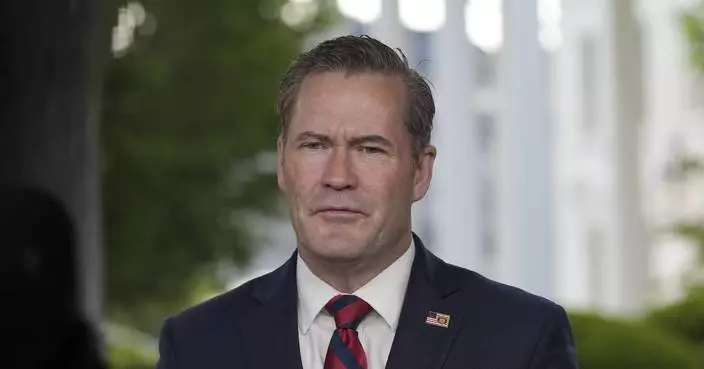WASHINGTON (AP) — The nation's top health agency will undertake a “massive testing and research effort” to determine the cause of autism, Health and Human Services Secretary Robert F. Kennedy Jr. announced.
Kennedy, a longtime vaccine critic who has pushed a discredited theory that routine childhood shots cause the developmental disability, said Thursday that the effort will be completed by September and involve hundreds of scientists. He shared the plans with President Donald Trump during a televised Cabinet meeting.
Click to Gallery
Health and Human Services Secretary Robert F. Kennedy Jr., from left, speaks as Interior Secretary Doug Burgum, Secretary of State Marco Rubio, President Donald Trump, Defense Secretary Pete Hegseth, Commerce Secretary Howard Lutnick Secretary of Education Linda McMahon, Director of the Office of Management and Budget Russell Vought and White House National Security Adviser Mike Waltz listen during a cabinet meeting in the Cabinet Room of the White House, Thursday, April 10, 2025, in Washington. (Pool via AP)
U.S. Health Secretary Robert F. Kennedy Jr. tours the Native Health Mesa Food Distribution Center in Mesa, Ariz., Tuesday, April 8, 2025. (AP Photo/Ross D. Franklin)
U.S. Health Secretary Robert F. Kennedy Jr. tours the Native Health Mesa Food Distribution Center in Mesa, Ariz., Tuesday, April 8, 2025. (AP Photo/Ross D. Franklin)
U.S. Health Secretary Robert F. Kennedy Jr., right, is accompanied by Susan Levy, Native Health Communications and Community Relations director, during a tour of the Native Health Mesa Food Distribution Center, in Mesa, Ariz., Tuesday, April 8, 2025. (AP Photo/Ross D. Franklin)
Health and Human Services Secretary Robert F. Kennedy Jr., from left, speaks as Interior Secretary Doug Burgum, Secretary of State Marco Rubio, President Donald Trump, Defense Secretary Pete Hegseth, Commerce Secretary Howard Lutnick Secretary of Education Linda McMahon, Director of the Office of Management and Budget Russell Vought and White House National Security Adviser Mike Waltz listen during a cabinet meeting in the Cabinet Room of the White House, Thursday, April 10, 2025, in Washington. (Pool via AP)
President Donald Trump, from right, Secretary of State Marco Rubio, Interior Secretary Doug Burgum and Health and Human Services Secretary Robert F. Kennedy, Jr., attend a cabinet meeting at the White House in Washington, D.C., U.S., April 10, 2025. REUTERS/Nathan Howard
Trump suggested that vaccines could be to blame for autism rates, although decades of research have concluded there is no link between the two.
“There's got to be something artificial out there that's doing this,” Trump told Kennedy. “If you can come up with that answer, where you stop taking something, eating something, or maybe it's a shot. But something's causing it."
Autism is a developmental disability caused by differences in the brain. It presents with a wide range of symptoms that can include delays in language, learning, and social or emotional skills.
There’s scientific consensus that childhood vaccines don’t cause autism. Leading autism advocacy groups, including Autism Speaks, agree.
Research, including studies of twins, shows genes play a large role. No single environmental factor has been deemed a culprit. The National Institutes of Health, which already spends more than $300 million yearly researching autism, lists some possible risk factors such as prenatal exposure to pesticides or air pollution, extreme prematurity or low birth weight, certain maternal health problems or parents conceiving at an older age.
Kennedy has offered no details on how his study will be different or what researchers will be involved. Leading autism organizations, such as the Autism Society of America, have not been included in discussions about the research, said ASA spokeswoman Kristyn Roth.
Roth said many agree that more research is needed to determine what causes autism, but Kennedy’s approach has raised alarms.
"There is a deep concern that we are going backward and evaluating debunked theories,” Roth said.
Trump and Kennedy have both expressed concerns about rising autism diagnoses rates.
Some of that increase is due to increased awareness and a change in how the disability is diagnosed. For decades, the diagnosis was given only to kids with severe problems communicating or socializing and those with unusual, repetitive behaviors. But around 30 years ago, the term became shorthand for a group of milder, related conditions known as ″autism spectrum disorders.” Milder autism cases are far more common than severe ones.
With improved screening and autism services, diagnosis is increasingly happening at younger ages, too. And there’s been more awareness and advocacy for Black and Hispanic families, leading to an increase in autism diagnosed among those groups.
Still, anti-vaccine advocates, including Kennedy, have claimed that vaccines are to blame. The theory largely stems from a 1998 paper that was later retracted.
Scientists have since ruled out a link between vaccines and autism, finding no evidence of increased rates of autism among those who are vaccinated compared to those who are not.
Kennedy has hired David Geier, a man who has repeatedly claimed a link between vaccines and autism, to lead the autism research effort. The hiring of Geier, who the state of Maryland found was practicing medicine on a child without a doctor's license, was first reported by The Washington Post.
HHS did not immediately response to a request for comment.
Associated Press writers Lauran Neergaard in Washington, D.C., and Carla K. Johnson in Seattle contributed.
The Associated Press Health and Science Department receives support from the Howard Hughes Medical Institute’s Science and Educational Media Group and the Robert Wood Johnson Foundation. The AP is solely responsible for all content.
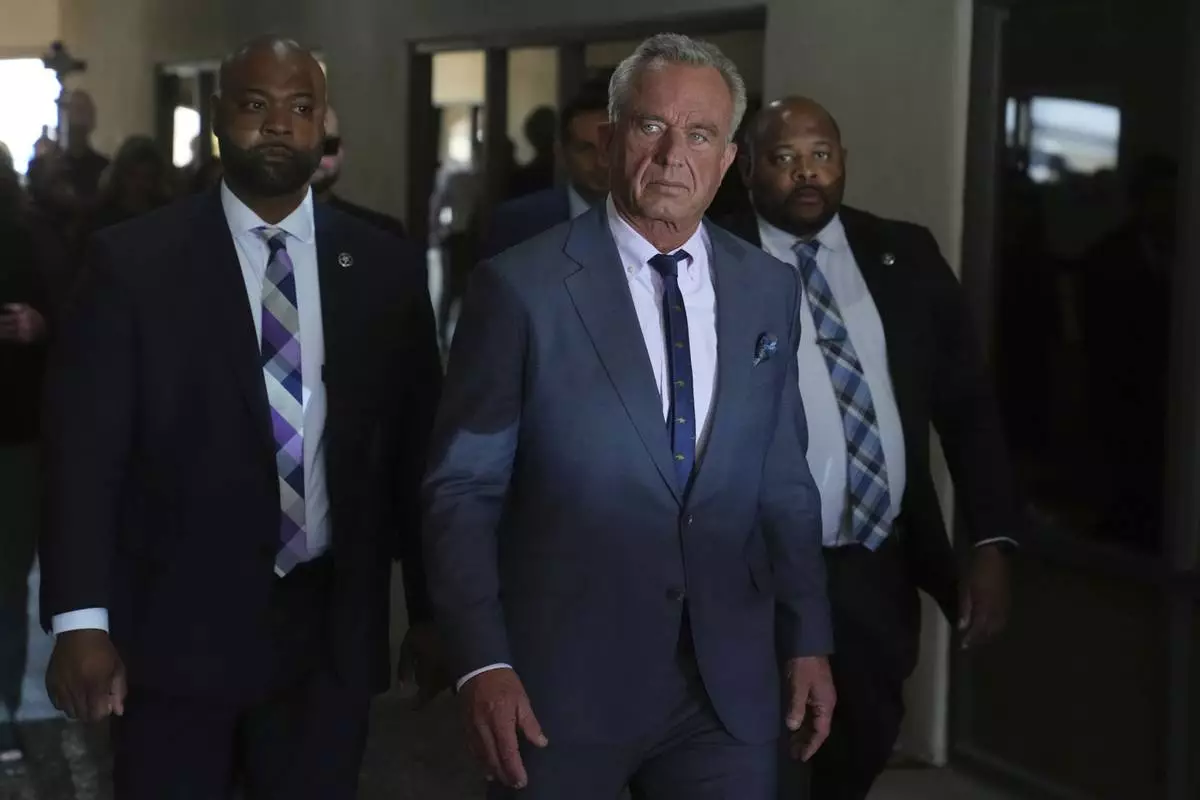
U.S. Health Secretary Robert F. Kennedy Jr. tours the Native Health Mesa Food Distribution Center in Mesa, Ariz., Tuesday, April 8, 2025. (AP Photo/Ross D. Franklin)
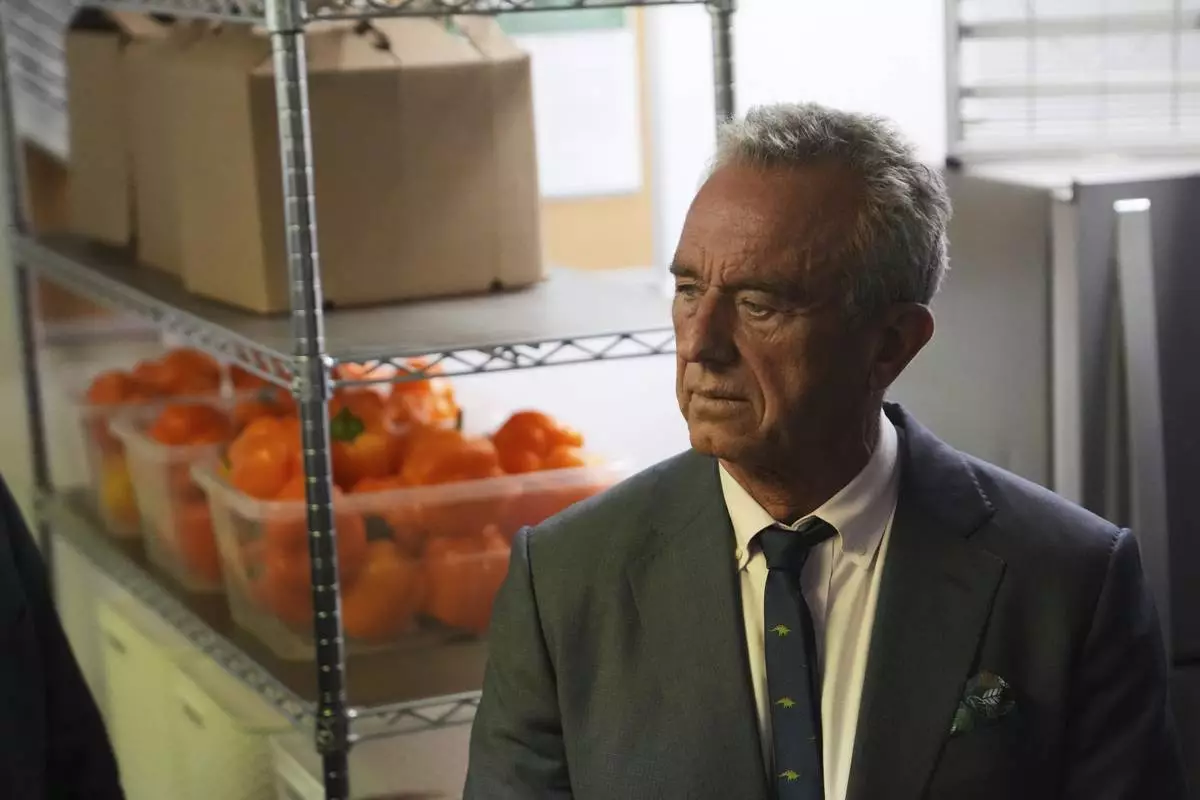
U.S. Health Secretary Robert F. Kennedy Jr. tours the Native Health Mesa Food Distribution Center in Mesa, Ariz., Tuesday, April 8, 2025. (AP Photo/Ross D. Franklin)
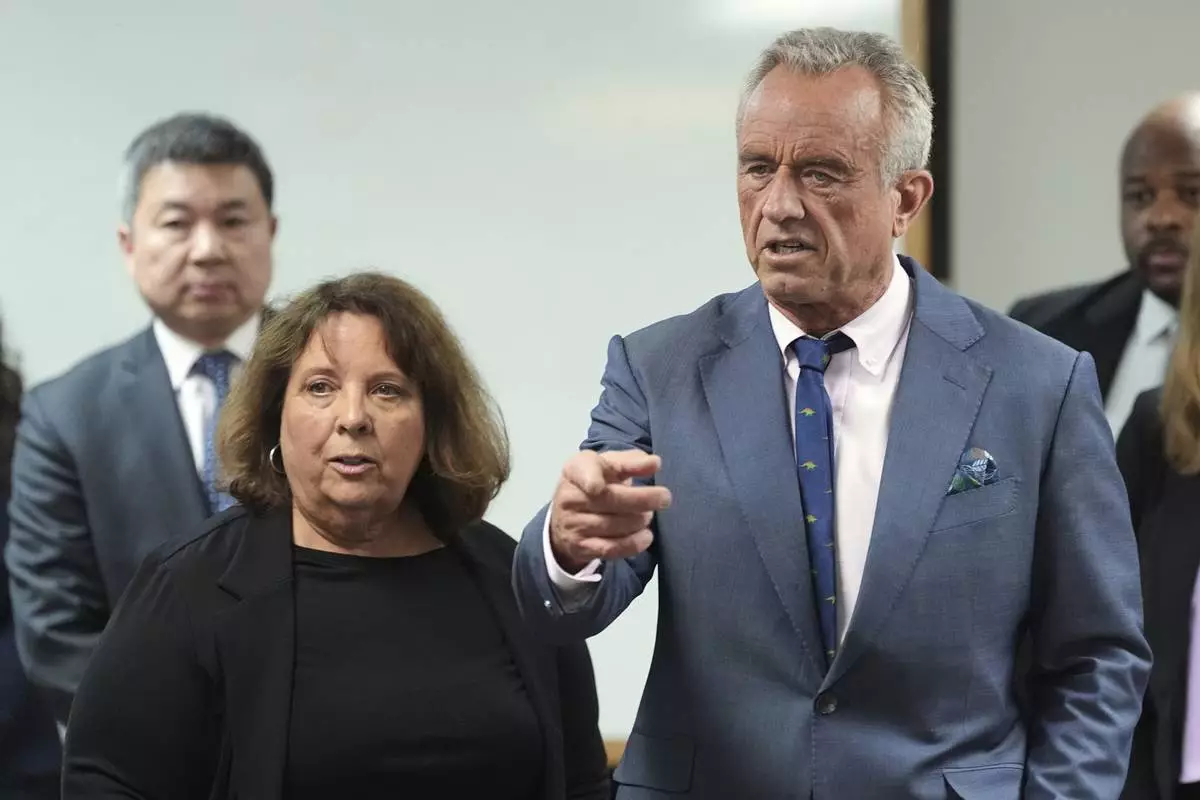
U.S. Health Secretary Robert F. Kennedy Jr., right, is accompanied by Susan Levy, Native Health Communications and Community Relations director, during a tour of the Native Health Mesa Food Distribution Center, in Mesa, Ariz., Tuesday, April 8, 2025. (AP Photo/Ross D. Franklin)
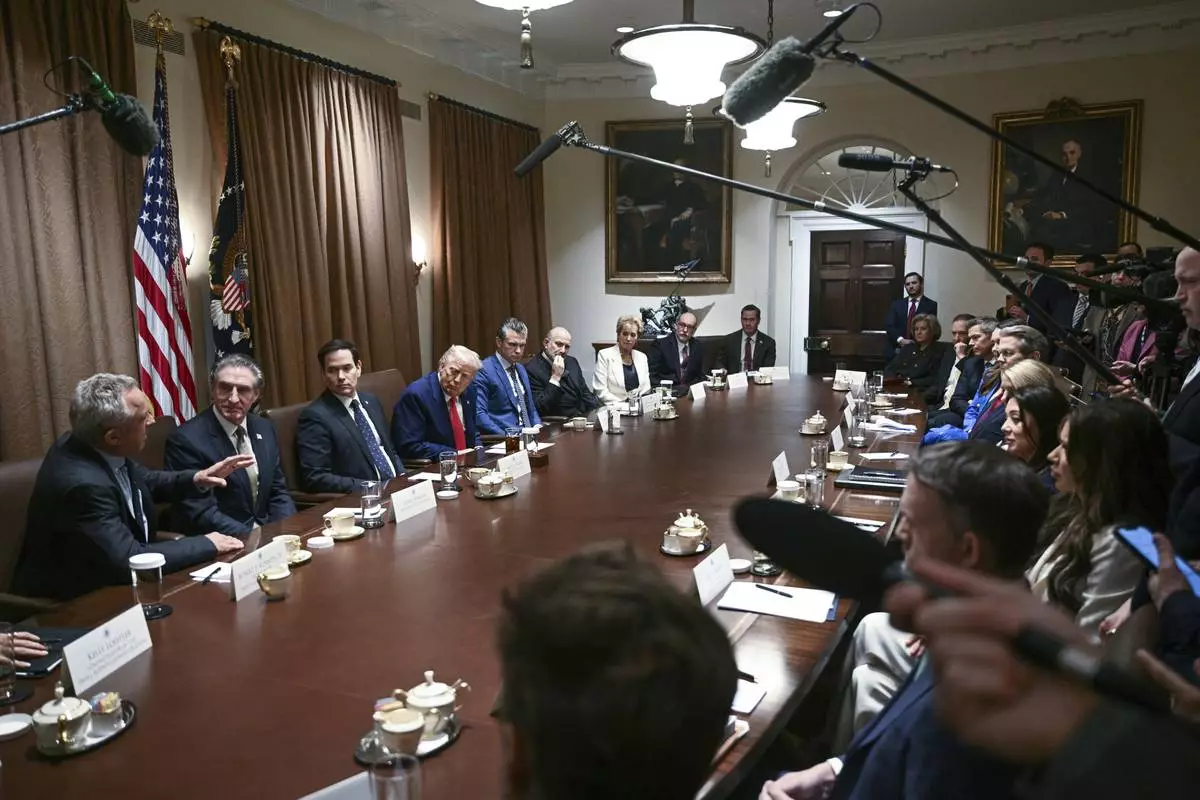
Health and Human Services Secretary Robert F. Kennedy Jr., from left, speaks as Interior Secretary Doug Burgum, Secretary of State Marco Rubio, President Donald Trump, Defense Secretary Pete Hegseth, Commerce Secretary Howard Lutnick Secretary of Education Linda McMahon, Director of the Office of Management and Budget Russell Vought and White House National Security Adviser Mike Waltz listen during a cabinet meeting in the Cabinet Room of the White House, Thursday, April 10, 2025, in Washington. (Pool via AP)
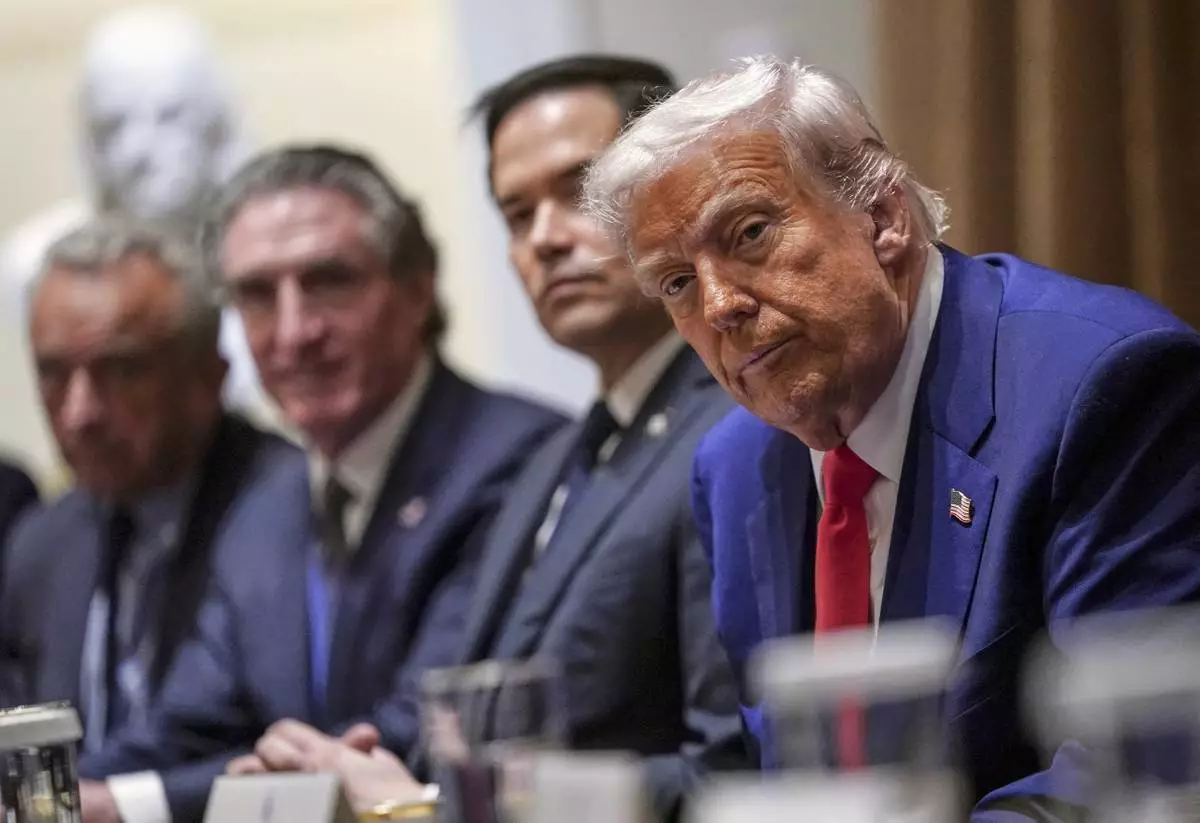
President Donald Trump, from right, Secretary of State Marco Rubio, Interior Secretary Doug Burgum and Health and Human Services Secretary Robert F. Kennedy, Jr., attend a cabinet meeting at the White House in Washington, D.C., U.S., April 10, 2025. REUTERS/Nathan Howard
WASHINGTON (AP) — To understand the Justice Department's struggles in representing President Donald Trump's positions in court, look no further than a quick succession of losses last week that dealt a setback to the administration's agenda.
In orders spanning different courthouses, judges blocked a White House plan to add a proof-of-citizenship requirement to the federal voter registration form, ruled the Republican administration violated a settlement agreement by deporting a man to El Salvador and halted directives that threatened to cut federal funding for public schools with diversity, equity and inclusion programs.
That's on top of arguments in which two judges expressed misgivings to a Justice Department lawyer about the legality of Trump executive orders targeting major law firms and a department lawyer's accidental filing of an internal memo in court questioning the Trump administration’s legal strategy to kill Manhattan’s congestion toll — a blunder the Transportation Department called “legal malpractice.”
According to an Associated Press tally, Trump executive actions have been partially or fully blocked by the courts around 70 times while judges have not impeded the president's orders in nearly 50 cases. Dozens of others are pending.
The Trump administration's effort to reshape American civil society, including a crackdown on illegal immigration and downsizing of the federal government, is encountering resistance from judges across a broad spectrum of philosophical leanings as lawyers for the Justice Department in some cases have strained to answer straightforward questions from judges about the basis or rationale for a particular policy or about the mechanics of its implementation. In at least one instance, a government lawyer who became openly exasperated in court at the lack of information he’d been given from the administration was soon after fired by the Justice Department.
Compounding the problem is an ongoing exodus from the department of experienced career lawyers accustomed to representing the federal government in court. Some of the key arguments in recent weeks have been handled by lawyers newly hired into political, rather than career, positions at the department.
Justice Department leadership has in recent months hired lawyers with conservative credentials from law firms in Washington and with past experience at state and local government agencies — but not necessarily federal experience.
“This is quite rare, if not unprecedented,” said Boston College law professor Kent Greenfield. “I can't think of another instance in which the Justice Department has lost so many cases in a short period of time and the reason they're losing is because they're wrong — and obviously wrong.”
Trump administration officials, including Attorney General Pam Bondi, have attributed the losses to what they call “activist” judges bent on impeding his agenda. Some White House allies have called for impeaching judges, with adviser Elon Musk describing it as a “judicial coup.”
But that belies the reality that some of the most blistering rebukes of Justice Department arguments have come from conservative judges like J. Harvie Wilkinson III, an appointee of Republican President Ronald Reagan who said in an April opinion that the idea the government could not return to the U.S. a man it had deported to El Salvador was “shocking not only to judges, but to the intuitive sense of liberty that Americans far removed from courthouses still hold dear."
Jonathan Turley, a George Washington University law professor, cautioned against making too much so soon in the administration of its legal track record. The Supreme Court with its conservative 6-3 majority, including three Trump appointees, has yet to weigh in on the vast majority of the cases.
“This Department of Justice will continue to defend President Trump’s agenda in court, and we remain confident that we will ultimately prevail,” Justice Department spokesperson Chad Gilmartin said in an email.
The Trump administration has also succeeded in some cases in beating back legal challenges, and some early defeats at the trial court level have been subsequently overturned by a federal appeals court, such as when a panel cleared the way for the administration to fire thousands of probationary workers in spite of a judge’s earlier opinion.
In another case, the Supreme Court overturned a lower judge's order that had blocked the administration from using an 18th-century wartime law to deport Venezuelan migrants, though the court said they must get a chance to challenge their removals before they're taken from the United States. The Supreme Court also recently granted the Trump administration’s plea to cut hundreds of millions of dollars in teacher training money while a lawsuit continues.
“There’s over 600 District Court judges, any one of which can issue limited or national injunctions,” Turley said. The rulings may be important, he added, “but there’s a great deal of runway between a U.S. district court and the United States Supreme Court.
The challenges, however, were laid bare in a Washington courtroom just last week when Richard Lawson, a newly minted deputy associate attorney general, repeatedly struggled to provide what a judge said was “basic” information about one in a series of executive orders targeting a major law firm with punishing sanctions — including the suspension of attorney security clearances.
“So you don’t know whether the firm or the individuals whose security clearances were suspended have been given any notice about the timing of the review, who the decision-maker is, the information that’s being reviewed as part of this review, whether they’re going to have an ability to see that information, comment on the information, correct the information, object to the information?” U.S. District Judge Beryl Howell asked pointedly. “You can’t tell me anything about that?”
“I can't speak to that, Your Honor," replied Lawson, who years before recently joining the Justice Department had worked with Bondi in the Florida attorney general's office and was also a lawyer at a pro-Trump think tank called the America First Policy Institute.
Lawson fared no better weeks earlier when pushed to explain the administration's national security rationale for punishing a different law firm, Jenner & Block, because one of its former partners, Andrew Weissmann, had years earlier been a prosecutor on the team of special counsel Robert Mueller that investigated Trump during his first term.
“You’re not going to really tell me that having someone employed four years ago poses some kind of national security threat?” asked U.S. District John Bates, an appointee of George W. Bush, a Republican.
“Not per se, no,” replied Lawson.
In another case, Judge Colleen Kollar-Kotelly scolded the Justice Department in court papers last week over what she described as the “contradiction” between statements made in court by one of its lawyers “and the facts on the ground.” While the judge did not contend that the lawyer "intentionally misrepresented the facts," the appointee of Democratic President Bill Clinton added: “The Court must remark that this exchange does not reflect the level of diligence the Court expects from any litigant — let alone the United States Department of Justice."
Stuart Gerson, who led the Justice Department’s civil division under Republican President George H.W. Bush and later served briefly as acting attorney general, said it appeared the Trump administration was sending lawyers into court "without adequate information and instructions.”
“I sympathize greatly with these folks who are arguing some of the cases, who are just parroting what they’ve been told to say without being able to answer questions about their ramifications, the what-ifs and the background information,” Gerson said.
Follow the AP's coverage of the U.S. Department of Justice at https://apnews.com/hub/us-department-of-justice.
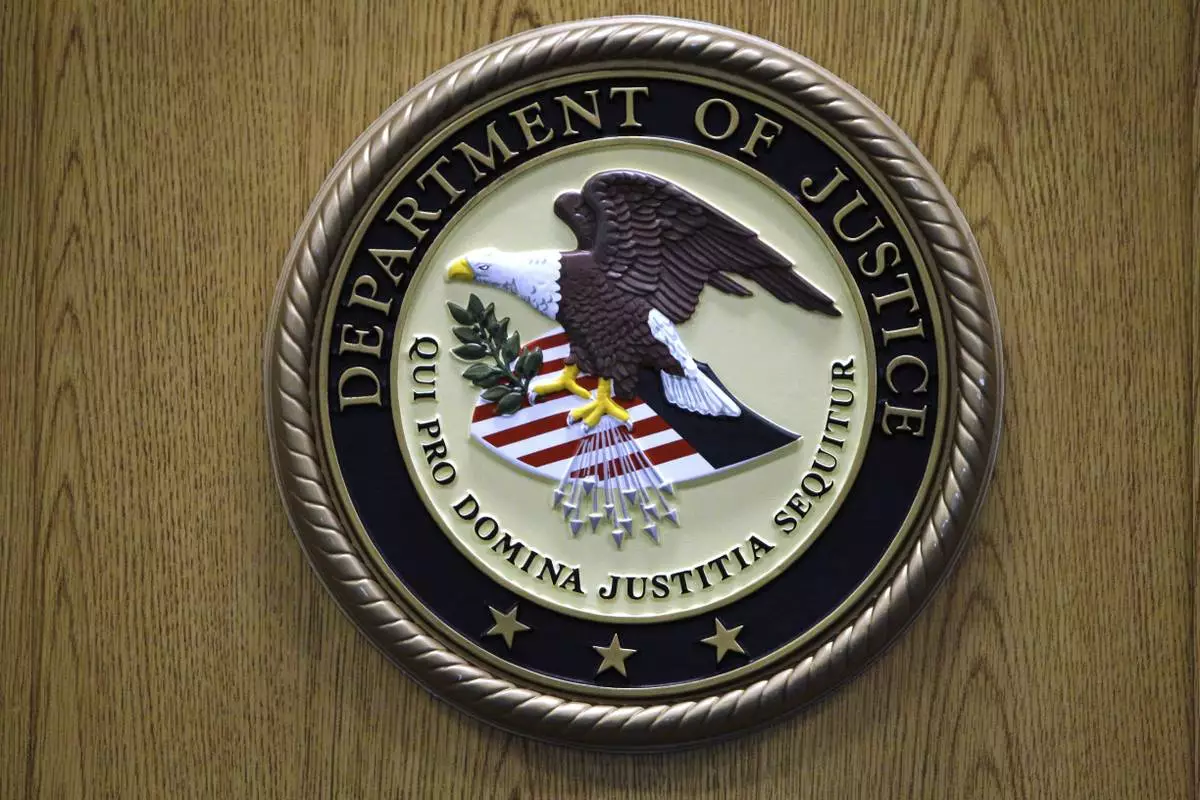
FILE - The Department of Justice logo is shown on a podium during a news conference, Sept. 30, 2010, in Philadelphia. (AP Photo/Matt Slocum, File)







